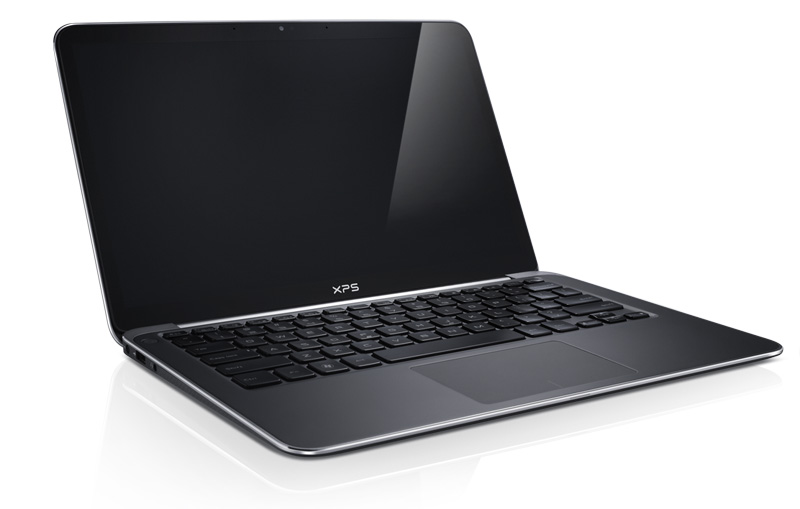 NEWS
NEWS
 NEWS
NEWS
 NEWS
NEWS
![]() Yesterday’s post about Dell’s experimental developer-centric laptop Project Sputnik struck a chord. It’s the most popular post we’ve done at DevOpsAngle, it has 181 comments on Hacker News so far and Dell’s collected 40 suggestions on its IdeaStorm feedback site. One clear theme: There’s no such thing as the perfect developer laptop.
Yesterday’s post about Dell’s experimental developer-centric laptop Project Sputnik struck a chord. It’s the most popular post we’ve done at DevOpsAngle, it has 181 comments on Hacker News so far and Dell’s collected 40 suggestions on its IdeaStorm feedback site. One clear theme: There’s no such thing as the perfect developer laptop.
Needs vary quite a bit depending not just on developer taste, but on the type of development being done. Systems developers have different needs from Web application developers. as RedMonk analyst Donnie Berkholz wrote on Twitter: “Funny watching the debate on the ‘perfect’ dev laptop. Screen glossy or matte? 6:9 or 4:3? Almost as bad as editor wars.”
Some developers need beefy hardware specs to run multiple virtual machines. Others just need a local Unixy environment for writing PHP. Still, the top rated ideas on IdeaStorm tend to be about the hardware specs – better displays and more RAM top the list.
Many developers think they already have the perfect notebook in the Macbook Pro or Macbook Air. Linux kernel developer Linus Torvalds famously uses an Air, and told TechCrunch: “I’m have to admit being a bit baffled by how nobody else seems to have done what Apple did with the Macbook Air – even several years after the first release, the other notebook vendors continue to push those ugly and *clunky* things.”
Web developers in particular have favored Macs in recent years, and although Apple caught a little flak for making Xcode a paid download, the OSX environment makes for a friendly place for developers who want a Unix toolchain without giving up the comforts of a mainstream computing environment. The ability to run multiple operating systems through Boot Camp or through virtualization tools like Parallels and VMware Fusion make it hard to beat.
The Lenovo ThinkPad is another favorite. One Hacker News reader commented “At the very least a laptop designed for developers ought to keep the Insert/Home/PageUp + Delete/End/PageDown cluster in the normal formation, like Thinkpads do.” Another commenter soon noted, however, that the new line of ThinkPads will have a new keyboard layout.
But this much is clear: in its current state, the Dell XPS13, the model being used as a trial-run of the Dell developer laptop, is not the notebook developers are looking for. But the Project Sputnik team at Dell didn’t expect to get it right the first time, right out of the gate. “The whole idea is to be agile, the goal is to do a scrappy skunk works project,” project leader Barton George told me today. “We latched onto the XPS13. It’s a good looking system that’s getting a lot of attention right now, so it was a good one to get started with.” George explained that the team will be iterating as the feedback rolls in.
And roll in it has. There’s no such thing as a perfect developer laptop, but Dell is in a position to alleviate some pain. Let’s hope the Project Sputnik team listens. So far, it seems that they are. For example, George commented on his blog that one of the next versions, if the project makes it far enough, will have 16GB of RAM. Having a few options, but not too many, will make all the difference.
On brighter note, many commenters were simply happy to see official support for Linux coming out of a major vendor. I know from experience that installing Linux on a laptop can be like pulling teeth, and many non-developers have expressed interest.
Support our mission to keep content open and free by engaging with theCUBE community. Join theCUBE’s Alumni Trust Network, where technology leaders connect, share intelligence and create opportunities.
Founded by tech visionaries John Furrier and Dave Vellante, SiliconANGLE Media has built a dynamic ecosystem of industry-leading digital media brands that reach 15+ million elite tech professionals. Our new proprietary theCUBE AI Video Cloud is breaking ground in audience interaction, leveraging theCUBEai.com neural network to help technology companies make data-driven decisions and stay at the forefront of industry conversations.